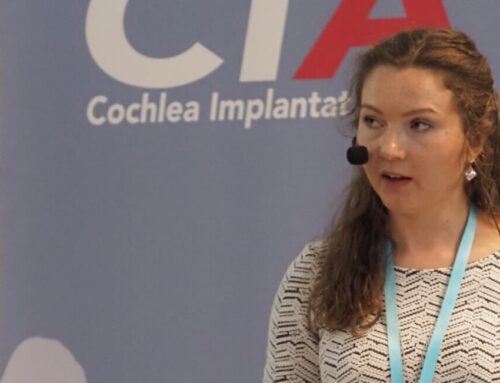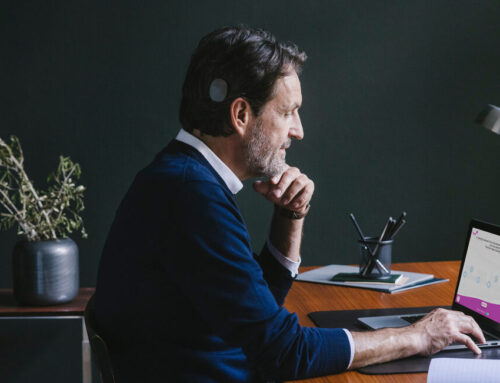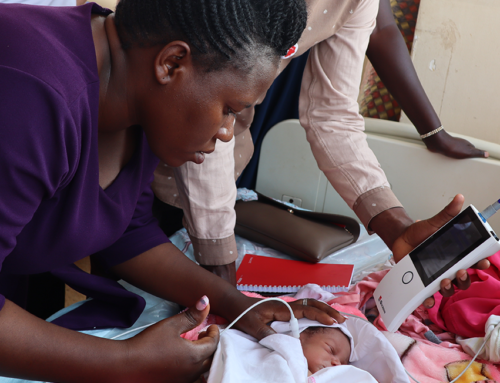EURO-CIU General Assembly & Symposium 2022 in Rotterdam
On November 11 and 12, 2022, the EURO-CIU convened in the Dutch trading city of Rotterdam for its Symposium and General Assembly. CIA has compiled the most important information for you.

The history of the former grain exchange dates back to the 16th century, the current building dates back to the middle of the last century and was recently renovated. The building was intended to be spacious and flooded with light so that the quality of the grain could be assessed with the naked eye. Today the Postillion World-Trade-Center is a hotel and conference center. On the street side, commercial spaces on two levels are a distant reminder of its former use. Inside, meeting rooms of various sizes are used by different groups; in the front, usually a table with coffee and cake and five or six people lined up.
For the more than 200 participants of the EURO-CIU Symposium, the three large buffet trolleys in the hall were barely enough, and long queues formed during the breaks. The speakers on the latest scientific trends and the challenges in CI care throughout Europe were for the most part CI users themselves or relatives of CI users. The General Assembly the next day was still attended by 40 people.
Challenges have changed, underuse remained!
When the European umbrella organization was founded in 1995, CI users in Europe, who were still isolated at that time, faced a lot of hostility. Today, the umbrella organization represents 250,000 CI users and is itself a member of various European and international health and disability rights organizations. Implants are now possible for babies as well as for elderly seniors. In addition, the application criteria have expanded. Thus, more and more people could actually benefit from CIs. However, access to cochlear implantation is not keeping pace, not even in economically strong Central Europe.
Leo de Raeve, Scientific Advisor to EURO-CIU, used Belgium as an example to explain: In 2016, 6.6 percent of all those adults who would have benefited from a CI actually had an implant; in 2022, only 5.7 percent did. And that's despite the fact that more implantations were performed that year.
Together with other European and international organizations, the EURO-CIU is working to establish defined and rapid access to cochlear implants for all who would benefit, as well as minimal standards of care and follow-up.
Critics of cochlear implantation now also argue the costs of implant and surgery - despite numerous publications showing that the implantation-related cost savings clearly outweigh the benefits for the affected individuals and society.
Focus of the scientific lectures
One focus of the scientific symposium was the connection between hearing and cognitive functions: The sensitive developmental window for the cognitive ability of auditory language understanding and the influence of hearing on general development in children, the earlier, remembered hearing experiences of adults, and the possible effects of hearing impairment on cognitive degeneration symptoms.
Unilateral deafness and its consequences were addressed using a study of affected children, as well as the benefits achievable with implantation on the deaf side. These effects can also be transferred to bilateral implantation on both sides of deaf people.
It is also about the workplace!
For the first time in this extent the connection hearing, non-hearing and work was discussed: Not hearing does not only affect people in their private social life, but also their professional career. This is obvious in the case of telephone operators or educators, but audio-verbal communication is also part of everyday work in most other professions, often including telephone calls.
The greater effort involved in audio-verbal communication causes hearing-impaired workers to tire more quickly and is often even the root cause of burnout. Workplaces in open-plan offices are particularly challenging. Rapid access to effective assistive technology is therefore not only important for better career development, but often also for maintaining the current job and the basic ability to work.
On the other hand, the proportion of hearing-impaired employees is increasing. Young people in particular are increasingly showing signs of hearing impairment. Noise exposure during leisure time is just as responsible for this as noise exposure during employment. Noise reduction, noise protection and noise breaks are particularly important!
The EURO-CIU set a good example: with its own quiet room during the symposium and general assembly.
Finally traveling again - also with (hearing) impairment
Together with other international organizations, the EURO-CIU advocates the introduction of a Europe-wide disability card. This European Disability Card EDC is intended to provide people with disabilities with benefits and advantages when traveling throughout Europe. All the information usually found on the disability card is accommodated on the size of a credit card: for the most part as a language-independent pictogram, detailed additional information even via QR code as a page that can be called up online.
The card is already available and valid in Belgium, Cyprus, Estonia, Finland, Italy, Malta, Slovenia and Romania, and according to experience reports it is also recognized in Great Britain. In Austria, the EDC is not yet valid, nor can it be applied for from here. The Austrian Disability Council says it is working to have the EDC recognized here as well. The EU Commission announced that the EDC will be extended to all EU countries by 2023.






